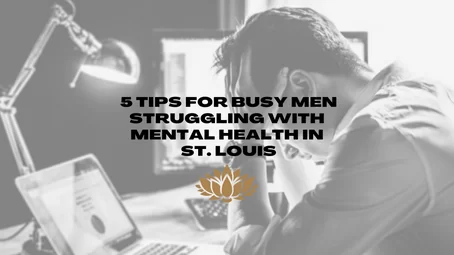Chronic illness can be overwhelming, especially when everyone around you has musts and shoulds that they want to impose on your way to deal with it all. So, let’s pause for a bit and think about the permissions you deserve to give yourself as a chronically ill person.
So, you’re sick. Like really sick. The kind of sick that doesn’t go away with Ibuprofen, when a virus has run its course, or even after you’ve had a procedure to reduce symptoms.
You’re one of the 6 in 10 people in the United States living with a chronic disease or part of the 10% of people who develop long COVID after an initial infection.
And because you weren’t born sick or experienced identifiable symptoms until young adulthood, you’re constantly adjusting to this new reality … this new normal, a love/hate phrase in the illness world.
You’re practically learning a new language to describe your symptoms or diagnosis/es, becoming a master scheduler to fit in appointments, and constantly paying attention to the impact of food/exercise/treatment on everyday life.
When you’re chronically ill, it can also feel like you’re surrounded by suggestions, questions, and judgment.
Have you tried _____?
This is only happening because you did _____.
It’s all in your head.
Other people have it worse.
Are you drinking enough water?
You can concede that, generally, people do mean well, but right now, at this moment, you really just want them to … stop. As if you hadn’t considered some of these things already, or you aren’t your own worst critic. You didn’t ask for this life, after all.
But because you are your own worst critic, and you sometimes need people to validate or tell you it’s okay to do/not do [fill in the blank], we are here to offer you 8 permissions to give yourself as a chronically ill person.
8 Permissions for When You Are Chronically Ill
Permission to seek treatment …
Starting off with a permission that might be totally duh to some but eye-opening for others is permission to seek treatment or an explanation for what’s going on in your body.
Culture, gender roles, family of origin “stuff”, finances, insurance, commitments, and other nuances influence the ways we seek medical care. No matter the medicine bag you carry, you deserve an answer to your questions and relief from your pains. Seek the treatment. Keep digging. Ask the questions.
Permission to not seek treatment …
On the contrary, we acknowledge that being a full-time patient, regardless of other commitments, is exhausting. The mental load of managing appointments, procedures, medicines, and contraindications of all of the above can be too much. Sometimes you just need a break.
If your medical team (which includes you, by the way!) establishes that it’s safe to do so, you can step off the treatment or cure rollercoaster. Sometimes people even use this “break” to do some of the emotional work that accompanies a chronic illness.
Permission to make accommodations …
It’s not lost on us that requesting accommodations, like using a mobility device, is just another layer to the illness and disability grief onion. Using a mobility device or requesting others to mask up can feel like that “monster on a hill” Taylor Swift sings to us about in Anti-Hero (obviously, I’m a Swiftie).
All this said, it really is okay to change how you’ve always done things to fit with the reality of your current situation.
Things like using mobility devices, masking, using reserved parking, observing a flexible work schedule, etc. all have a purpose and exist for a reason. Do and use the things that allow you to live a semblance of your pre-sick days.
And while we’re on the topic – it’s also okay to change up your needs based on the day/week you’re having. Not every day or every outing demands mobility aids, and you don’t owe anyone an explanation for this, either.
Permission to not feel sick 100% of the time …
After requesting accommodations, establishing care with a great medical team, or receiving new benefits, you might feel like a phony when you *checks notes* actually feel alright. You are not a martyr.
You don’t have to be at your worst 100% of the time to validate the need for accommodations, care, benefits, attention, consideration, and more.
When you experience chronic pain, energy fluctuations, joint instability, and other symptoms, a good day is a luxury. You have all the permissions to take a leave of absence from your “professional chronically ill person” job and enjoy life.
Permission to not trust medicine …
This is controversial, we know, but sometimes a procedure or treatment doesn’t go the way we planned. Or you’re the person who finds themself experiencing the “less common side effects” on the prescription warning label. It’s okay to be skeptical or need information from quality, reputable sources before trying something new.
If this is you, try to balance your skepticism with your “do trust” list – a provider who will be honest with you, a friend who asks hard questions, or an illness community with firsthand experience of treatments, procedures, providers, and other resources.
Permission to want bad results …
Okay, so you don’t want things to actually be bad, but you do want answers. Something to try. An idea of where to go next. Sometimes “bad” results mean you qualify for a procedure that could make a really big difference in your quality of life or get you help that you desperately need. You’re not wrong for envisioning a means to an end.
Permission to not look on the bright side …
Don’t bright-side yourself. Seriously. It really is okay to complain, wish your diagnosis wasn’t a thing, or desire for things to simply be different. You’re not flawed if you can’t come up with a silver lining for a diagnosis or a “reason” for this to have happened to you.
Author Megan Devine often tells the grief world that “some things can’t be fixed; they can only be carried.” This is true for illness, too, and carrying the illness means carrying the reality that things are different than you wanted.
Permission to seek a different kind of help …
Modern medicine is a dichotomy of incredible progress and impossible stagnancy. This dichotomy and the trauma (yes, trauma) of aspects of healthcare mean that not everything is solved with a pill or a “wait and see” approach. If you are finding yourself asking spiritual questions about a diagnosis, having trouble relating to others after a life-changing hospitalization, or challenging automatic thoughts relating to illness, mental health therapy could be a helpful complement to your medical care.
Counseling for chronic illness in St. Louis, MO is available to you. Marble Wellness offers in-person, virtual, or park therapy appointments with therapists trained in the complexities of chronic illness. Virtual appointments allow for any person in the state of Missouri to receive care. Reach out today to schedule your first appointment for chronic illness counseling.
What other permissions as a chronically ill person have you offered yourself – or someone offered you – while navigating the ins and outs of chronic disease? Let us know.
About the Author
Meet Nicole Rhodes! An LCSW who is part of our amazing Marble Wellness team. With years of experience working in hospitals and nonprofits, Nicole now utilizes her therapy skillset to provide counseling to those with chronic illness, who are dealing with grief, or those navigating life transitions.
Start Therapy for Mental Health in St. Louis
If you live in St. Louis and are ready to improve your mental health, we are here to help.
Contact Us!
Additional Counseling Services at Marble Wellness in St. Louis, MO and Chicago, IL
Counseling services are designed to help set you on a path of living a more fulfilled, calm, and happy life.
St. Louis
Our St. Louis team of therapists has a variety of training backgrounds and areas of expertise. We specialize in anxiety, depression, grief, chronic illness, therapy for men, couples, and maternal overwhelm. Our practice also helps new moms with various postpartum concerns, moms in the thick of parenting, and moms with teens. We can also chat from wherever you are in the state with online therapy in Missouri and online therapy in Illinois. No matter where you are in your journey, we would love to support you.
Chicago
Our Chicago team of therapists offers a wide range of mental health services to help our clients through the different challenges and hurdles in their lives. In addition to anxiety, depression, grief, therapy for men, and maternal overwhelm, we specialize in professional burnout, therapy for breakups, and love partnering with working moms.




